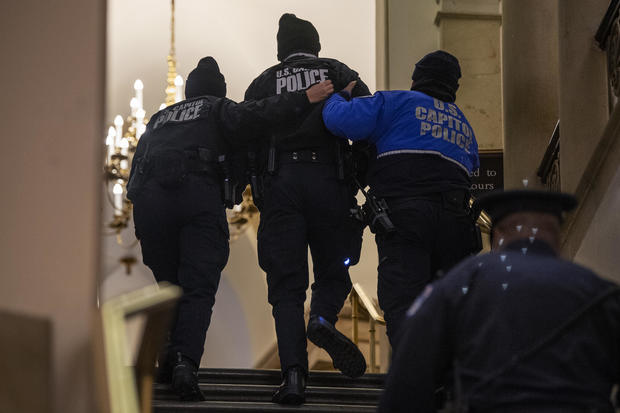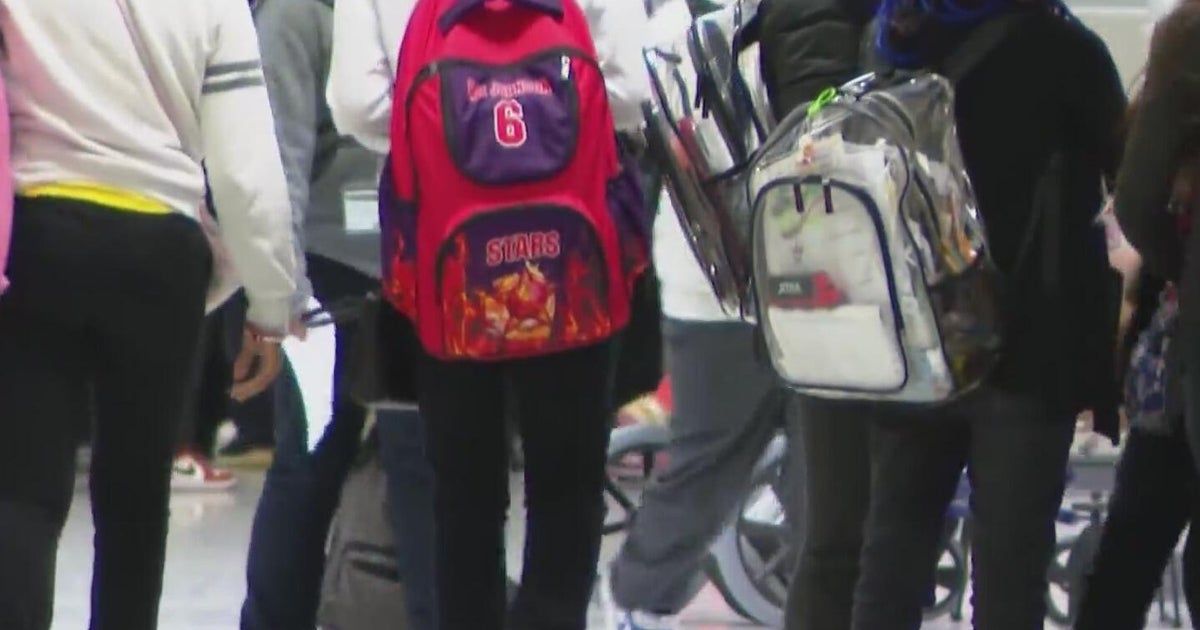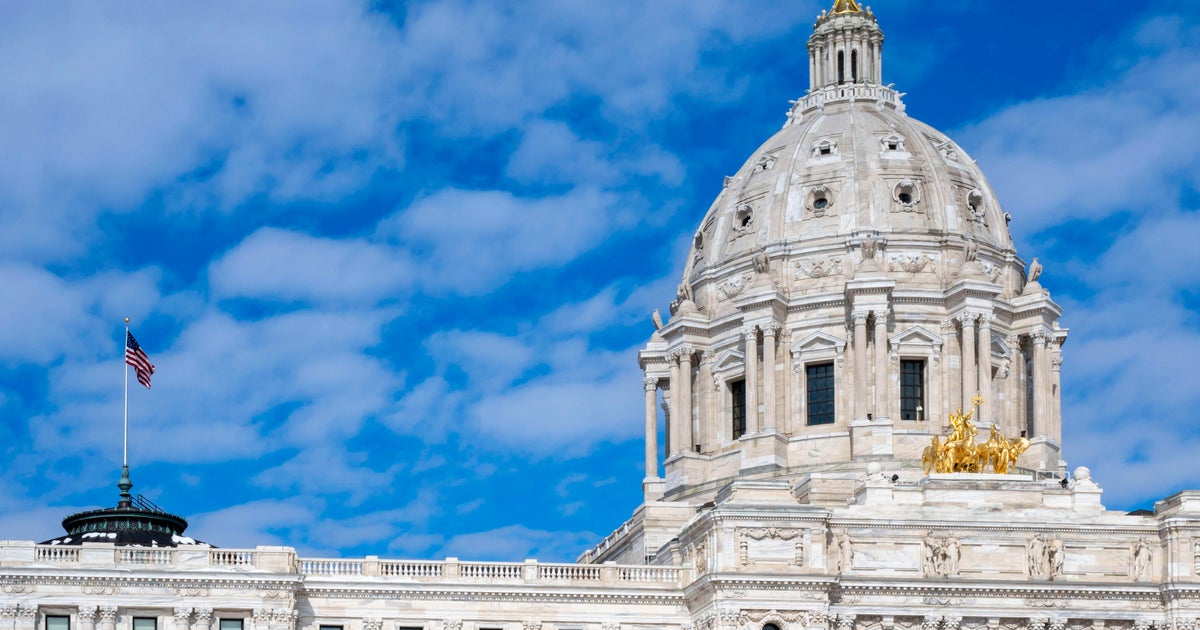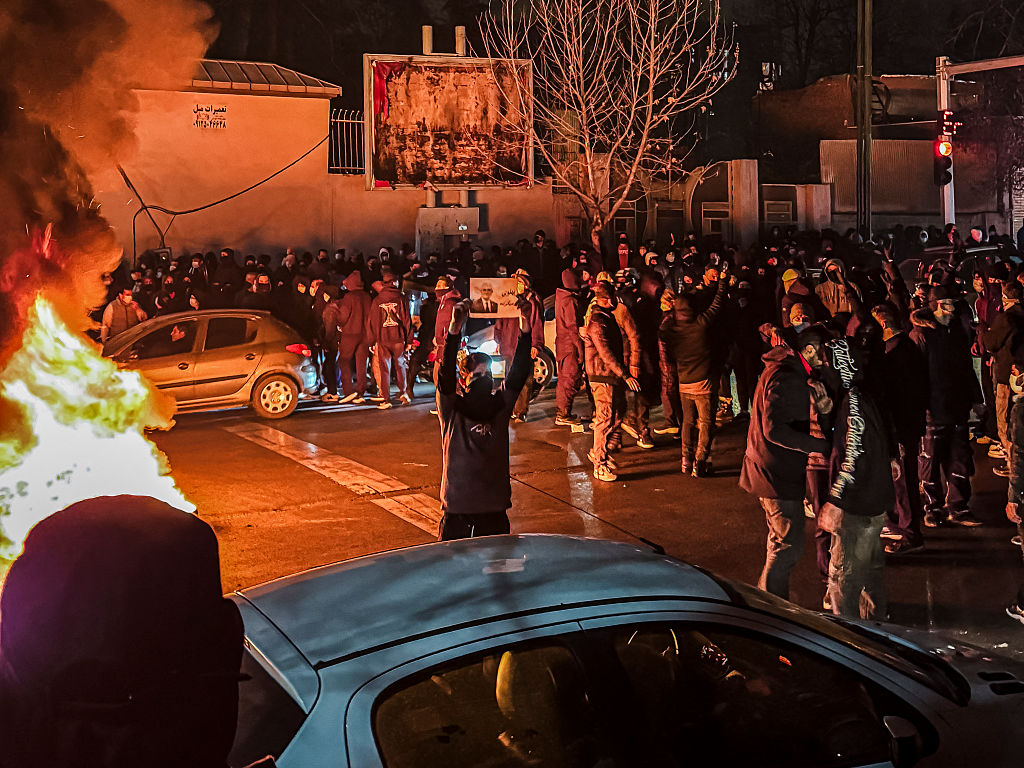Capitol Police inspector general report says majority of recommendations have not been fully implemented since January 6
The U.S. Capitol Police's Office of Inspector General (IG) has finalized the last in a series of reports analyzing the department's failures surrounding the January 6 attack on the Capitol, and found that just under a third of their recommendations to improve future safety and security have been fully adopted, according to the report obtained by CBS News.
The "flash reports" authored by the IG's office over the past year detail suggestions for security enhancements from their review into the failures that led to a crowd of pro-Trump protestors overruning police and storming Capitol grounds. In the eighth and final report, the office revealed that out of the 104 recommendations only 30 have been fully implemented by the Capitol Police department.
Moreover, the report includes a list created by the department of approximately 200 "Post-January 6 Improvements" made by the Department and shared with the IG's office. However, the IG only found that 61 of those enhancements were "substantiated with supporting documentation."
Many of the IG's recommendations that were not fully implemented remain open, suggesting the Capitol Police has taken initial steps to address them. For example, the IG previously cited the department's failure to disseminate an intelligence assessment ahead of January 6 to rank-and-file officers suggesting protesters may "become violent" and that "Congress itself is the target on the 6th."
According to the report, the intelligence division is now "conducting bi-weekly classified intelligence briefings for the Department's Executive Management Team and Capitol Police Board representatives as well as attending roll calls on a regular basis to communicate intelligence information to the rank-and-file personnel."
Under enhancements for field training, the IG found that the Capitol Police had implemented mandatory and routine evacuation and shelter in place drills for both the House and Senate chambers, according to the report. Yet the IG disputed that the department had "revamped and altered" the efficiency of the Police Training Officer Program.
Last week, Inspector General Michael Bolton testified before the Senate Rules and Administration Committee. He told senators that although there have been improvements, the department still has more to do to make the Capitol building and grounds "safe and secure."
Hiring continues to be an issue for the department, which has authorization for 1,800 officers, but Bolton said it has seen 200 leave or retire from the force since January 6, although Capitol police say that number is closer to 130. Bolton cautioned that efforts to increase hiring at this time would not be a quick cure for the absence left by those officers, seeing how onboarding training for new recruits takes about a year.
"The Department still lacks an overall training infrastructure to meet the needs of the department, the level of intelligence gathering and expertise needed, and an overall cultural change needed to move the department into a protective agency as opposed to a traditional police department," Bolton said.
Specifically, Bolton said Capitol Police must continue to ramp up cooperation and communication, increase training and prioritize intelligence gathering and access.
However, some improvements on that front have already been made. Officers now have government issued cell phones, and both rank and file officers and department leadership are now able to receive intelligence briefings, but Bolton suggests taking it a step further by establishing an intelligence bureau within the department with its own director.
In a statement to CBS News, a spokesperson for the Capitol Police said the department is "stronger" than they were prior to January 6.
"We have done significant work to improve the Department. Our primary focus has been completing the recommendations that could prevent another attack," the statement went on to say. "Although the USCP's OIG closed roughly 30 recommendations, we have resolved more than 60, which means we have a detailed plan in place to close the recommendation."
The department maintains they have gone to lengths to address and plan ahead of major events, collaborate with other agencies, and add training and equipment to the force, among other enhancements.




